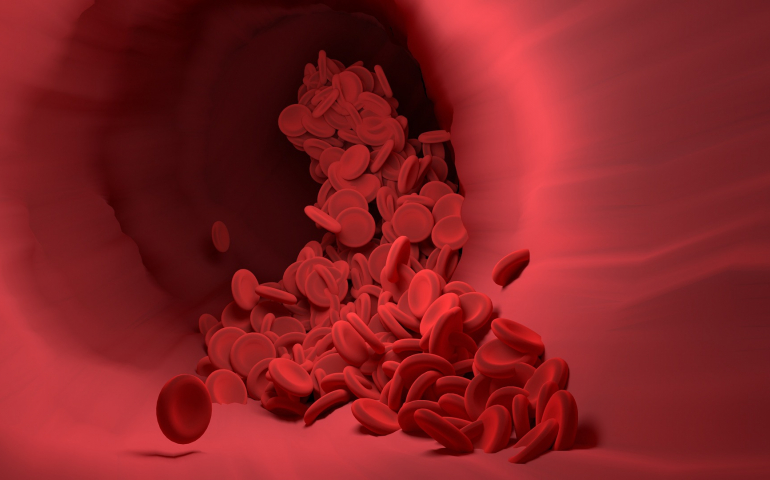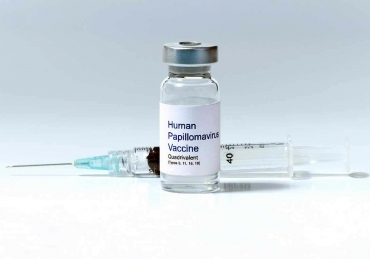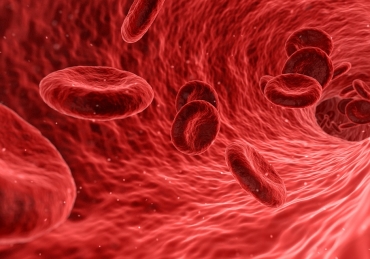Nasal septum cauterisation
Question
My 4-year-old daughter has nosebleeds due to the heat (especially in the summer) or when she gets hit (even slightly) on her nose. Sometimes, it can happen several times a day, while at other times, there may be no bleeding for several weeks. When I was a child, I had the same issue, and my parents took me to a doctor who cauterised the inside of my nose using chemicals or a burning tool that provided electricity or heat. Since then, I have been able to spend several years without being bothered by nosebleeds. I am unsure if such medical treatment is permissible in Islam, as some narrations that I was able to hear or read suggest that it is not a legitimate Islamic healing act.
بسم الله الرحمن الرحیم
Answer
Cauterisation of the nose to deal with persistent nosebleeds is permissible. This is supported by many Ḥadīths that permit it.
It is also true that some narrations appear to prohibit it. Imam Ṭaḥāwī (d. 321/933) has reconciled the narrations in Sharḥ Maʿānī al-Āthār (4:321) by suggesting that the prohibition is when cauterisation is used before being affected by an illness, due to the pre-Islamic belief that cauterisation prevents illness and calamities from occurring. It was thus prohibited because the purpose was not treatment, rather the belief that cauterisation in itself repels calamities which is a form of disbelief. Imam Ṭaḥāwī also suggests that it is possible that the prohibition is abrogated via the narrations that suggest it is permissible. The third reconciliation is that cauterisation is not preferred or that is Makrūh Tanzīhī (disliked), especially when there is an alternative treatment that is not so invasive and painful. It should be noted that there was no anaesthetic in the Prophetic era in the way that there is now. The fourth reconciliation is that the prohibition is when there is a material risk to one’s health from the cauterisation.
قال الفخر الزيلعي في تبيين الحقائق (٦/٢٢٧) وأقره في الهندية (٦/٤٤٥): يجوز كي الصغير وبط قرحته وغيره من المداواة، انتهى. وكذا صرح به في تنوير الأبصار (٦/٧٥٢)۔
وأما الأحاديث والآثار فعن ابن عباس رفعه: الشفاء في ثلاثة: في شرطة محجم، أو شربة عسل، أو كية بنار، وأنا أنهى أمتي عن الكي، رواه البخاري (٥٦٨١). قال ابن الملك في شرح المصابيح (٥/٩٢): (أنا أنهى أمتي عن الكي): والنهي قبل وقوع ضرورة داعية إليه، أو في موضع يعظم خطره، أو الكي الفاحش، وإليه وقعت الإشارة بقوله (أو كية) أي: كية واحدة غير فاحشة، أو لأن أهل الجاهلية كانوا يعتقدون أن الشفاء يحصل منه البتة فنهاهم عنه، لأن الشافي هو الله تعالى، وقيل: النهي عنه نهي تنزيه، انتهى۔
وعن جابر بن عبد الله رفعه: إن كان في شيء من أدويتكم شفاء، ففي شرطة محجم، أو لذعة بنار، وما أحب أن أكتوي، رواه البخاري (٥٧٠٤، ٥٦٨٣). وهو يدل على أن النهي للتنزيه أو عند عدم الضرورة، وترجم عليه البخاري: باب من اكتوى أو كوى غيره، وفضل من لم يكتو، وخرج أيضا (٥٧٠٥) حديث ابن عباس ذكر فيه سبعون ألفا يدخلون الجنة بغير حساب، وهم الذين لا يسترقون، ولا يتطيرون، ولا يكتوون، وعلى ربهم يتوكلون۔
وعن المغيرة رفعه: من اكتوى أو استرقى فقد برئ من التوكل، رواه ابن ماجه (٣٤٨٩) وصححه الترمذي (٢٠٥٥)۔
وعن عمران بن حصين أن رسول الله صلى الله عليه وسلم نهى عن الكي، قال: فابتلينا فاكتوينا فما أفلحنا ولا أنجحنا، رواه الترمذي (٢٠٤٩) وصححه۔
وعن جابر قال: بعث رسول الله صلى الله عليه وسلم إلى أبي بن كعب طبيبا، فقطع منه عرقا، ثم كواه عليه، رواه مسلم (٢٢٠٧)۔
وعن جابر قال: رمي أبي يوم الأحزاب على أكحله فكواه رسول الله صلى الله عليه وسلم، رواه مسلم (٢٢٠٧)۔
وعن جابر قال: رمي سعد بن معاذ في أكحله، قال: فحسمه النبي صلى الله عليه وسلم بيده بمشقص، ثم ورمت فحسمه الثانية، رواه مسلم (٢٢٠٨)۔
وعن أنس أن النبي صلى الله عليه وسلم كوى أسعد بن زرارة من الشوكة، رواه الترمذي (٢٠٥٠) وحسنه۔
وعن قيس بن أبي حازم قال: دخلنا على خباب، نعوده، وقد اكتوى سبع كيات، الحديث، رواه البخاري (٥٦٧٢). وقد روي الكي عن جماعة من الصحابة، ذكر الطحاوي بعضها في شرح معاني الآثار (٤/٣٢٣)۔
وأما الكي للصبي فعن أنس قال: كويت من ذات الجنب، ورسول الله صلى الله عليه وسلم حي، وشهدني أبو طلحة وأنس بن النضر وزيد بن ثابت، وأبو طلحة كواني، رواه البخاري (٥٧١٩)۔
Allah knows best
Yusuf Shabbir
2 Dhū al-Ḥijjah 1445 / 9 June 2024
Approved by: Mufti Shabbir Ahmed and Mufti Muhammad Tahir







